Opening Session

Abigail Rich
Law School Reporter
Scholars, government officials and human rights workers from around the world congregated Sunday evening, 7 October 2012, for the opening session of the Nineteenth Annual International Law and Religion Symposium. The three distinguished keynote speakers who addressed the diverse audience delved into this year’s topic, “Religion, Democracy and Civil Society.” W. Cole Durham, Jr., Director of the International Center for Law and Religion Studies, moderated the session. Symposium delegates and visitors were…
First Plenary Session: The Role of Religion in Democratic Transformations
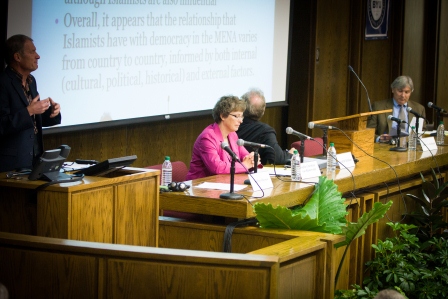
Natalie Wright Romeri-Lewis, Research Advisor
James R. Rasband, Dean, J. Reuben Clark Law School, and Cecil O. Samuelson, President, Brigham Young University, welcomed delegates and guests.
Second Plenary Session: Religious Organizations, Civil Society, and Pluralism
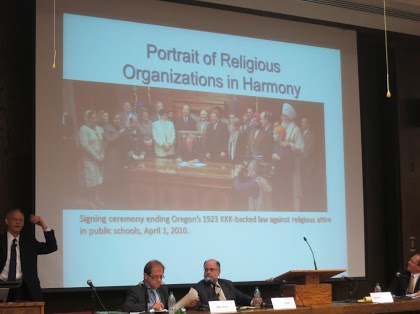
Jordan Pendergrass, Research Advisor
Allen Hertzke, Presidential Professor of Political Science at the University of Oklahoma, began the session by establishing a government-civil society paradox. Governments, he explained, feel the impulse to intrude upon civil society and whenever they succumb to the impulse their efficacy is undermined and certain classes are discouraged from making positive contributions to society. Mr. Hertzke cited a variety of social scientists whose findings point to the centrality of religious organizations. He continued by showing that there are strong correlations between social goods and the free exercise of religion. He made reference to the “Twin Tolerations” and the cycles of religious freedom and religious violence….
Third Plenary Session: Religion in Public and Private
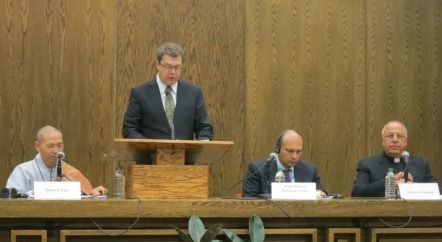
Joe Hepworth, Research Advisor
Brett G. Scharffs, Francis R. Kirkham Professor of Law and Associate Director, International Center for Law and Religion Studies, moderated the Third Plenary Session, titled “Religion in Public and Private.”
Hanna Kildani, Secretary General, Jordanian Christian Council of Churches, Jordan, argued for a balance between religion and democracy in civil society. Christian theology believes that religion serves mankind. Democracy and religion are seeking to…
Fourth Plenary Session: Conference Summation and Reflections on Conference Themes
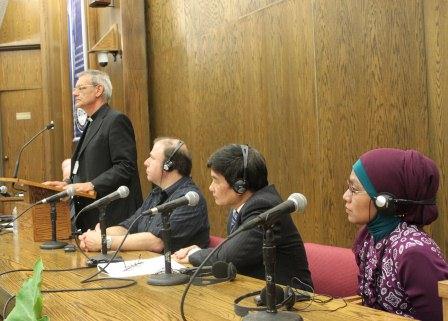
Michael B. Wood, Research Advisor
The Nineteenth International Law and Religion Symposium concluded with its fourth plenary session.
Ten of the 80 delegates were selected to provide their personal reflections on the themes that developed during the symposium:
- Ligia Dias Fonseca, First Lady, Office of the President of Cape Verde
- William Schmidt, Doctor of Philosophy, Dean of Faculty of Religious Studies, Ethnocultural Studies and Regional Studies, John the Apostle Orthodox Institute, Russian Orthodox University, Russia
…
Africa: Ghana, Liberia, and South Africa
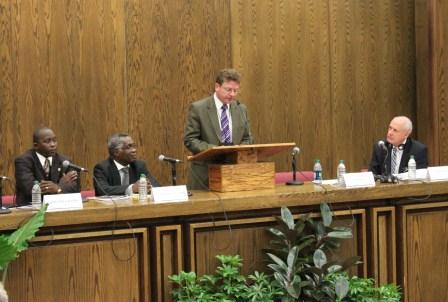
Brent Andrus, Regional Research Advisor for Africa
E.K. Quansah – Mountcrest University College; Accra, Ghana
Title: Religion, Democracy and Civil Society: The Case of “Witches” in Ghana
Religion plays a significant role in politics and society in most African nations and blends easily with politics. In Ghana, religious freedom is openly encouraged by the government. However, the practice of witchcraft is a serious issue. Yet, ironically, witchcraft is commonly encouraged by pastors of small, charismatic churches. It is common during calamities, such as the death of a child, for a scapegoat…
Armenia and Georgia
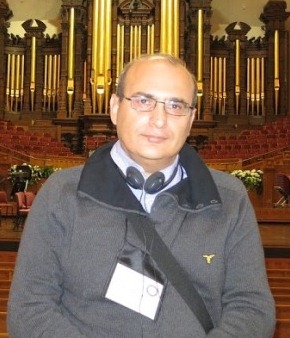
Robert F. Orton, Europe Area Research Manager
Stepan Danielyan, Armenia, is current editor-in-chief of both Religion and Society, a scientific journal, and the Religions in Armenia website (www.religions.am). He also serves as chair of “Collaboration for Democracy,” an NGO operating from Yerevan, and is a former producer and political commentator for Armenian National TV and author of more than 400 articles and interviews in international and local magazines. We are witnessing in Armenia, said Mr. Danielyan, the convergence of state with the national church which, along with other majority churches, aspire to an evolution into religious monopolies. As a result, churches have become the target of widespread criticism by society as reflected in proposed legislation which threatens religious…
Bolivia and Colombia
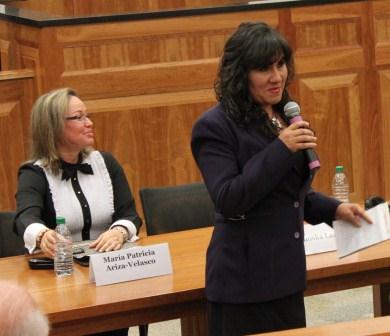
Mark Wood, Research Advisor
Maria Patricia Ariza-Velasco is Fourth Deputy Attorney before the Council of State, Procuraduria General de la Republica de Colombia. Ms. Ariza-Velasco reviewed the evolution and nature of religious freedoms as found in the Colombian constitution, statutes and case law. She discussed how these freedoms impact everyday life in Colombia in areas such as marriage, education, military service and in the guarantees of freedom of conscience. She stated that the assumption always favors the freedom of religion.
Ninoska Lazarte, Councilwoman, Municipal Council of Cochabamba City, Bolivia, gave a brief description of the religious composition of the Bolivian population. She stated that in the future this information will be more difficult to obtain. Beginning…
Cape Verde and Brazil
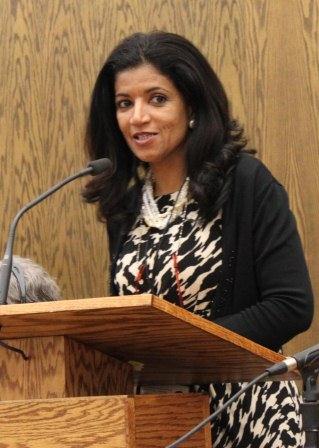
Gaylee Coverston, Research Advisor
The session on Cape Verde and Brazil began with a presentation from Ligia Dias Fonseca, the First Lady of Cape Verde. She presented a general overview of Cape Verde, a republic consisting of ten islands with a relatively young population. She spoke on the consitution of the republic partularly clarifying article 48, Freedom of Conscience, Religion and Creed. Ms. Fonseca covered the legal requirements for registration of a religion and gave a statistical view of current religions in the country. She emphasized the need for interaction and respect. She also explained that even though Cape Verde is a civil state and the laws and statutes on religious freedom are clear and specific, a form of civil religion is expressed through certain civil ceremonies that are presided over by catholic representatives. …
Central America: Panama, Nicaragua, Guatemala
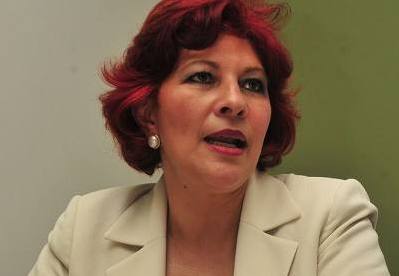
Mark Wood, Research Advisor
Marylin Vallarino, Member of Congress, National Congress of Panama
Ms. Vallarino spoke of the various institutions which form or mold a person’s behavior and character including the family, school, religion, media and “the street”. She focused on the importance of religion in helping to create just, compassionate, caring people and a society of peace, justice and fairness. She spoke of how this by-product of religion helps to temper the always present political temptation for…
China
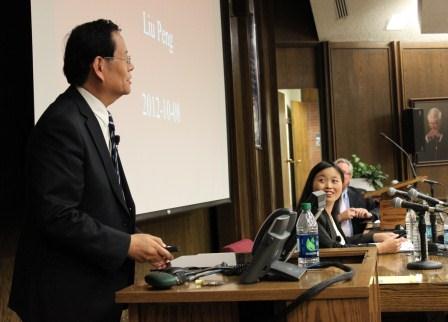
Natalie Wright Romeri-Lewis, Research Advisor
Liu Peng, Director, Pu Shi Institute for Social Science, China presented the top ten issues in religion and the rule of law in China today. First, China must define the role of religion it wants in its society and determine whether religion is a negative or positive element in society. He feels that more people today, as opposed to the 1960s, feel religion is useful and positive in society, but “no one makes an announcement” to that fact. Second, the new model must protect religious freedom and preserve the separation of church and state….
Dominican Republic
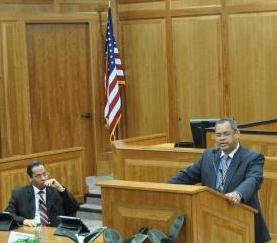
Natalie Wright Romeri-Lewis, Research Advisor
Fidel Lorenzo Meran, Minister, Dominican Council of Evangelical Unity, described in detail the Christian roots of the Dominican Republic and how the country embeds Christianity in government. First, the name ‘Dominican Republic’ means ‘Land of God.’ As the Dominican Republic became independent, it did so enshrining three principles: “God, Fatherland, and Liberty.” The three principles reflect the trinity and are found in the Constitution. Next, the Constitution specifically mentions the Catholic and Evangelical churches by name. In addition, when taking an oath, politicians state, “I promise in front of God.” Furthermore, the flag of the Dominican Republic is the only flag in the world with an open Bible and a cross….
Europe: Italy, Germany, and Norway
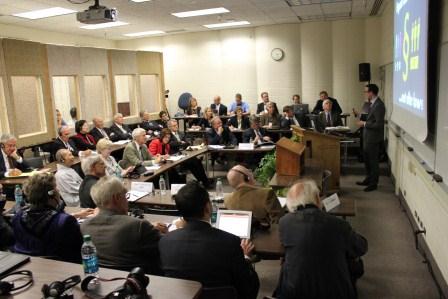
Robert F. Orton
Regional Research Advisor
José T. Martín de Agar, Italy, has been a Catholic priest since 1976. He is a Doctor of Canon Law (1976) and Law (1984); an Assistant Professor of Canon Law at the Faculty of Canon Law of Navarra; and a Professor of Church-State Relations and State Law on Religion since 1978 in the same university. Since 1984, he has taught such subjects in Rome at the Faculty of Canon Law at the Pontifical University of Santa Croce. His interests include freedom of religion. The Pope has frequently addressed the topic of religious freedom. Freedom of religion should be a civil right and must…
Mexico
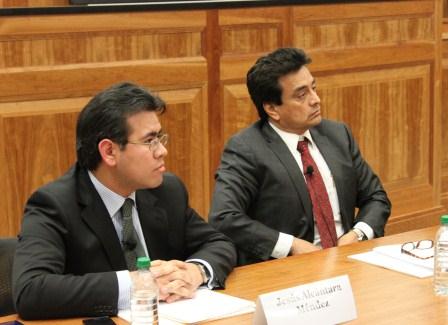
Richard Hutchison, Regional Research Advisor
In a breakout session of the 19th annual International Law and Religion Symposium, Jesus Alcantara Mendez, Javier Saldana Serrano, and Maximo Moscoso Pintado each presented an analysis of issues involving religious liberties in Mexico.
Maximo Moscos Pintado, the Religious Affairs Coordinator of the State of Tabasco, Secretaria de Gobernacion, presented an historical overview of religious liberties in Mexico. Starting with the original natives found in Mexico when the Spanish first arrived, Pintado traced the development of religious liberties…
Peru
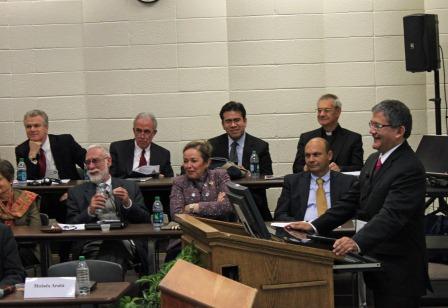
Gaylee Coverston, Research Advisor
Professor Juan Carlos A. Valderrama started the session with a brief historical perspective of government in Peru, touching on the various types of regimes. As he approached the concept of democracy and its development in Peru, he explained that civil and religious societies each have their reasons for existence, however, “Democracy and religion are two different realities and should not have influence on each other.” Professor Valderrama continued to illustrate how the various forms of government and influences from western liberty have lead to the current government committed to a lay state.
The session proceeded with Judge Jorge…
Private: Russia
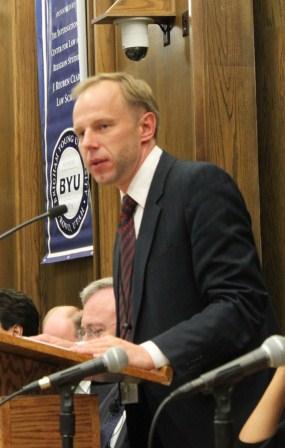
Francesco Di Lillo, Research Advisor
Professor William Vladimirovich Schmidt, John the Apostle Orthodox Institute, Russian Orthodox University, and Ekaterina Elbakyan, Professor of Sociology and Management of Social Processes, Moscow Academy of Labor and Social Relations, presented during the session focusing on Russia about the relationship between the individual and religion, as well as the legal practice on matter related to religious freedom.
Professor Schmidt took an intensive philosophical approach discussing religion from the perspective of the three concepts of the human, the individual and the personality. These concepts create the foundations of metaphysical systems which, in turn, realize their potential in specific logical models (Cartesian, Trinitarianism and eclectic poliontologism). The concept of “human” can develop 1) as a personality with morality as its primary…
Ukraine
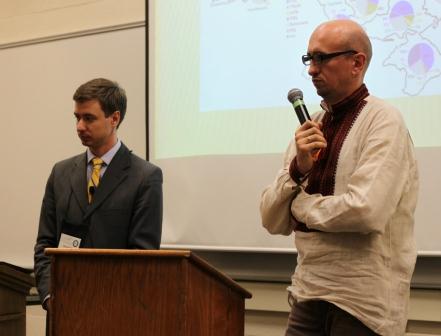
Francesco Di Lillo, Research Advisor
Taras Antoshevskyy, Director of the Religious Information Service of Ukraine, and Maksym Vasin, Executive Director of the Institute for Religious Freedom, discussed the status of religious freedom in Ukraine.
Mr. Antoshevskyy, regarded as the leading Catholic expert on religious freedom in Ukraine, offered an historical overview of the presence of Christian denominations in Ukraine, their relationships with each other and the state, leading up to our days and. He explained that Ukraine enjoyed centuries of peaceful coexistence between different religious groups, even at times when the rest of Europe was thorn by religious persecutions….
Vietnam
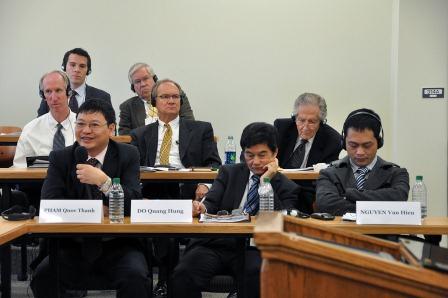
Ben Wishart, Research Advisor
DO Quang Hung, Professor, International Politics Department; Faculty of Political Science, University of Social Sciences and Humanities, Vietnam National University discussed how Vietnam is striving to create more effective religious laws. Vietnam is a secular state, but is going through a period of “religious reconfiguration.”
New religious policy in Vietnam began on or around 1990 with a policy called, “Resolution 24.” Under this resolution two ordinances have significantly changed how religion in Vietnam is viewed…